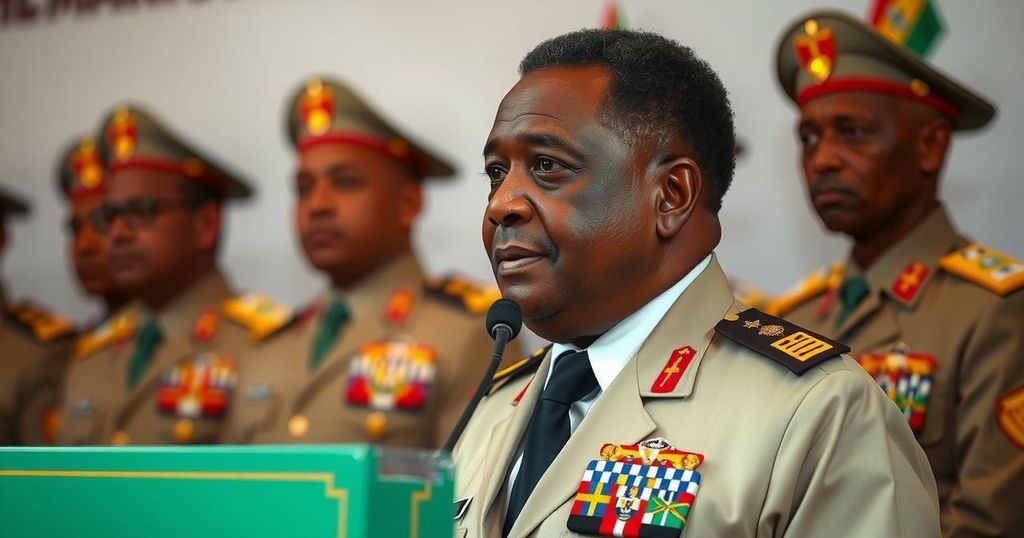Chadians are participating in parliamentary elections that conclude a three-year transitional period from military leadership. This election is the first in over a decade and follows a disputed presidential vote by military leader Mahamat Idriss Deby. However, major opposition groups are boycotting the elections, raising questions about the democratic process in Chad.
In Chad, citizens are participating in parliamentary and regional elections, representing the culmination of a three-year transitional period following military rule. This election, conducted on Sunday, marks the first parliamentary vote in over ten years, yet it is notably boycotted by the main opposition parties. The elections occur shortly after junta leader, Mahamat Idriss Deby, recently won a controversial presidential election aimed at reinstating democratic governance. Deby assumed power in 2021 upon the death of his father, Idriss Deby Itno, who governed for three decades.
The current parliamentary election in Chad is critical as it signals the end of a transitional government established after military rule. Following the death of long-time president Idriss Deby Itno, the military council has been in power under Mahamat Idriss Deby, prompting calls for a return to civilian governance. Despite the elections indicating a move towards democracy, the boycott by key opposition factions highlights ongoing political tensions and divides.
The parliamentary elections in Chad signify a pivotal moment in the nation’s quest for democracy following military rule. However, the absence of significant opposition participation raises concerns regarding the legitimacy of the electoral process and the future of democratic governance in the country. As the situation evolves, the outcomes of these elections will be closely scrutinized both domestically and internationally, bearing implications for Chad’s political landscape.
Original Source: www.wdrb.com






